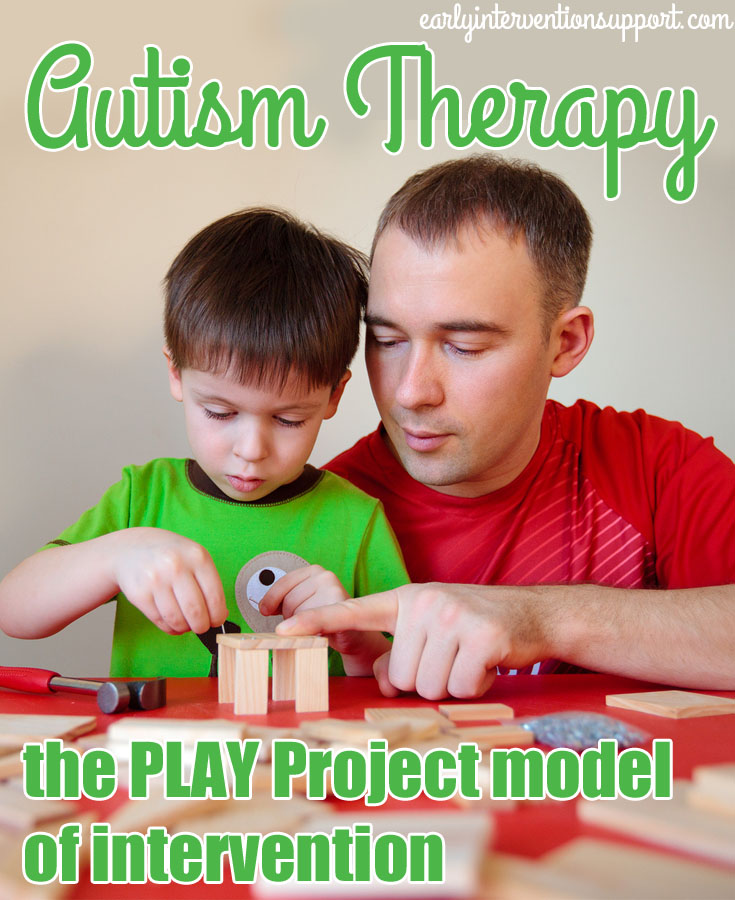As therapists working with our families in their natural environments, we have the ability to choose from many different approaches to autism spectrum therapy as well as identify appropriate structures for interventions that can be implemented. One such approach is called “The PLAY Project” (Play and Language for the Autistic Youngster). The PLAY Project is an evidence-based intervention practice created by Dr. Rick Solomon, rooted in the theory of DIR® (Developmental Individual Differences & Relationship-Based)/Floortime™.
The specific focus for The PLAY Project is language and interaction skills for children with autism spectrum disorders (ASD), but it works to address 6 Functional Developmental Levels: self-regulation and shared attention, engagement, two-way communication, complex two-way communication, shared meanings and symbolic play, and emotional thinking. These levels are valuable contributions to a child’s development and relationships with others, and often part of the focus in autism spectrum therapies.
The PLAY Project focuses on teaching parents and caregivers to play and interact with their child. By following their child’s lead in play and finding ways to help their child join in their shared activity, caregivers connect to their child and develop the skills to teach them through play. Natural environment sessions where The PLAY Project is implemented may look like simple activities, but the real work is manifesting great foundations for the expansion of skills. What might start out as simple eye contact may turn into peek-a-boo and extended exploration of facial expressions. In turn, what might start out as just bumping trains together, might transition into turn-taking or awareness of space and pretend play.
Specified areas of need for development are targeted and programming is planned for a few minutes to a couple hours per session throughout the day. Professionals prescribing and implementing The PLAY Project model are specifically trained and supervised to ensure the program is implemented appropriately and accurately. It is meant to be fun and implemented in ways that families can use and re-use within their natural environments and within the child’s interests. Dr. Solomon’s national trainings stress the importance of joining the child in their most fun and useful activities to create positive relationships and fun interactions.
The PLAY Project provides specified attention to targeted areas of development that children with ASD may encounter as challenging or delayed. With trained therapists, parent involvement, preferred play, and careful implementation, The PLAY Project can help reach children where they are most comfortable and confident. More information including payment for programming, training seminars, and contact information for The PLAY Project can be found at http://www.playproject.org/.

